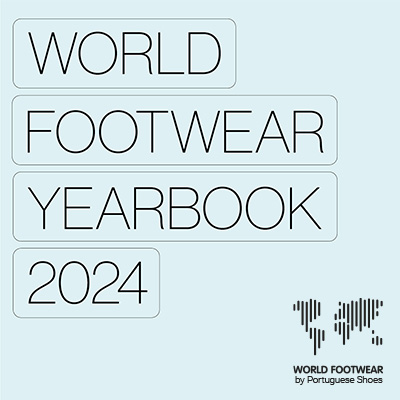Register to continue reading for free
Global footwear production down by 1.5 billion pairs in 2023

Drop in global footwear production
In 2023 global footwear production decreased by 6% to 22.4 billion pairs, the lowest point in a decade when discounting the pandemic years of 2020 and 2021.
There had been a loss of 1.5 billion pairs, following a drop in consumption in the main markets, as represented by the United States (-749 million pairs), China (-398 million pairs), and the European Union (-399 million pairs). Last year, 14 billion pairs were exported worldwide, down by 9.1% over the previous period. Despite the decline of 6.1% in the value of exports, the $168 billion registered in 2023 was the second-highest level on record.
The footwear industry continues to be strongly concentrated in Asia where almost 9 out of every 10 pairs of shoes are manufactured, resulting in a share of 87.1% of the world total.
China is the world’s largest footwear producer manufacturing 12.3 billion pairs in 2023 and capturing almost 55% of the global market share. India increased its share, now being accountable for 11.6% of the world total.
Asia accounts for more than half of global consumption
In 2023 Asia’s consumption accounted for more than half (54.7%) of the worldwide total, an increase in the share registered for this continent in the previous year. Europe and North America followed with shares of 13.9% and 13.4% respectively.
Per capita footwear consumption varies from 1.5 pairs in Africa to 4.6 pairs in North America.
China remains the leading consumer of footwear, although its share of the global total has further declined to now stand at 17.1%. Consumption in the United States recorded a significant reduction with the country losing the second position achieved in the previous year and exchanging places, once again, with India.
The European Union, when taken as one region, represents the third largest consumer market for footwear with 1 948 million pairs consumed in 2023.
A significant setback for footwear exports in 2023
Global footwear exports amounted to 14 billion pairs and $168 billion in 2023, implying a 9.1% and a 6.1% year-on-year decrease in volumes traded and value of transactions respectively.
Over the last decade, excluding 2020, the annual export volume fluctuated between 14 and 16 billion pairs with no discernible long-term trend. By comparison, the value of exports in 2023 climbed to reach $168 billion, the second-highest level on record and corresponding to a 24% increase when viewed against 2014 levels.
Amidst this challenging landscape, Asian countries consolidated their dominance in the global footwear trade, with their collective share rising to 84.6% from 83.9% in 2022. Conversely, Europe's share contracted slightly to 12.8%.
China stands out as the source of 63.8% of total exports, increasing from 61.3% in 2022. Vietnam ranks a distant second at 9.5%, followed by Indonesia at 3.2%. These three countries taken together account for over three-quarters of worldwide footwear exports.
Average worldwide export price continues an upward trend to reach $12
The average export price per pair of footwear reached 12 dollars in 2023, representing a 3.2% increase over 2022, a substantial increase of 38.8% over the past decade. Over that decade, textile footwear saw the most substantial price appreciation with a remarkable 65% increase. Leather footwear prices showed a modest increase of 24% over the period.
Leather footwear leads exports in value, but rubber & plastic leads in volume
When considering the value of exports, leather footwear accounts for 38% of the total value due to its higher average price. In terms of the volume of footwear exported, rubber & plastic footwear commands the pole position, accounting for half of the global exports.
About the World Footwear
APICCAPS, the Portuguese Footwear Association, has now published the 14th edition of its World Footwear Yearbook, launched in 2011. The Yearbook analyses the most important trends within the worldwide footwear industry. The availability of data for 2023, both in quantity and value, makes it possible to position the main players with regard to production, consumption, exports and imports. This publication also includes a specific analysis of 84 different markets as well as addressing the evolution of the sector’s leading global players.


